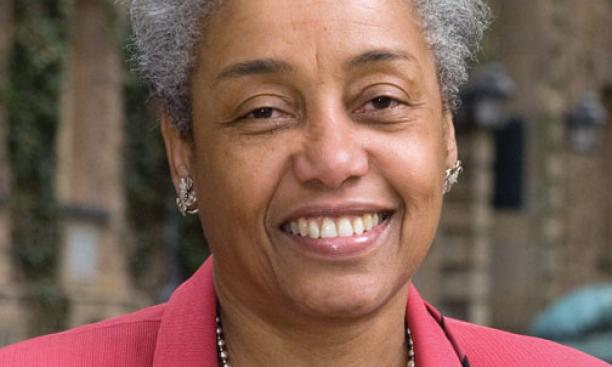

Soon after Janet Dickerson arrived at Princeton in July 2000 as vice president for campus life, she heard Dean of the College Nancy Malkiel offer an observation about the University. “The metabolism at Princeton is slow,” Dickerson recalled Malkiel saying.
Dickerson, who announced Oct. 8 that she plans to retire at the end of the academic year, said it’s been “challenging at times to realize how incremental change is.” But a list of changes during her tenure shows how she has helped to reshape the student experience at Princeton:
• The creation of the four-year residential college program.
• Development of Frist Campus Center into a campus hub, dispelling fears before it opened that it might become a “white elephant.”
• Improvements in health services, especially in the area of mental health.
• The opening this fall of two alternative social spaces for students on Prospect Avenue: Campus Club and the new home of the Fields Center and Community House.
• An expansion of the Office of Religious Life, including the hiring of coordinators for Hindu life and Muslim life.
• The opening of the Lesbian, Gay, Bisexual, and Transgender Center.
• The growth of civic-engagement activities through the Pace Center.
• More integration of graduate students in the life of the University.
“Janet Dickerson leaves a lasting mark on this university,” President Tilghman said. “Not only has she championed many wonderful improvements to the experiences of students outside the classroom, most significantly the implementation of the four-year college system, she has personally touched the lives of so many students along the way.”
Dickerson, who is 65 and is the highest-ranking black administrator at Princeton today, said she was honored to be both “a community-building agent and a change agent.” Coming to Princeton after five years at Earlham College, 15 years at Swarthmore, and nine years at Duke, she said she felt at times like an outsider coming into an environment that could seem “pretty inbred.”
But one advantage of being an outsider was that she could see “disparities in the experiences of students that were not so visible to others,” she said. “It was helpful to know things didn’t have to be the way they were at Princeton.”
Dickerson said she was fortunate to be at the University at a time of great prosperity and growth in student diversity, when “we could listen to students and imagine how to meet more of their needs” and at the same time work for “level playing fields so that everyone could have equitable access to all such experiences.”
Until the University opened the LGBT center in Frist with a full-time coordinator, Dickerson said, “A community that felt very closeted needed to come out of the closet — not just for that population, but for all of us, to help acknowledge we are all normal and deserve recognition and support and respect.”
Opportunities for graduate students outside their academic work were “not really on the radar” when she arrived, Dickerson said, but those interested “have been brought more centrally into University life,” she said.
She said she wished that more undergraduate women would “step up to leadership positions in major campus organizations.” Men still hold a disproportionate number of top posts, she said, even though there are “such wonderful role models” for women at Princeton.
Connor Diemand-Yauman ’10, president of the Undergraduate Student Government, said Dickerson is “compassionate, dedicated, and approachable. ... She understands students, and fights fiercely for their right to have a fun, meaningful, unique, and customized Princeton experience.”
